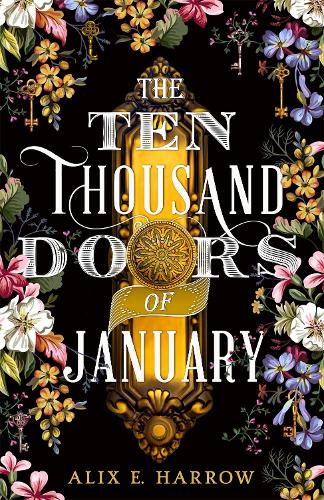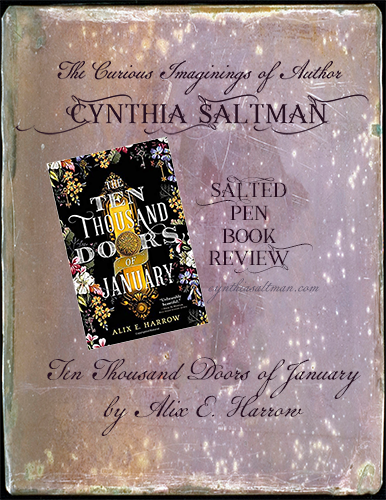

Locke, in the Vermont countryside in the first decades of the nineteenth century. Ten Thousand Doors centers on one January Scaller, a girl of color-though a color not quite of this world-who is being raised as the near-ward of a wealthy, landed gentleman and father of industry, Mr. She simply loves them and writes that love into the story, spinning the tropes into a tale built on that love. But Harrow doesn’t need to stand these ideas on their heads or weave them into a gritty, modernist fable to make them work. So is the idea of books as another kind of door. Magical doors to other worlds are a staple in fantasy. What struck me about Ten Thousand Doors is that Harrow didn’t have to reinvent these familiar ideas to make them seem new.

Sometimes I feel there are doors lurking in the creases of every sentence, with periods for knobs and verbs for hinges. Harrow’s debut novel, The Ten Thousand Doors of January, has gone further, expanding those themes and creating a love letter to the idea of books as doorways into other worlds.

“A Witch’s Guide to Escape,” and its Hugo win, reminded us that these themes don’t have to be trite and that fantasy can still be hopeful.

The tropes are also true and, when handled as expertly as Harrow handles them, they work. It might be a bit circular or self-referential to write a story about the power of stories but that doesn’t mean it’s not also great. Tropes like these are foundational to the joy of fantasy literature: a love of books, the desire to use them to venture into other worlds, the idea that a book could be an actual, physical escape from this world. So the witch-librarian breaks the rules and gives him the book he really needs: one of the hidden, magical books that are locked away somewhere in every library-in this case, the eponymous volume that lets him leave this reality for a better one. In the story, the boy’s need is too great for this to suffice it’s not enough to metaphorically escape into books. She keeps his spirit alive with classics like Le Guin’s A Wizard of Earthsea and others that I’m not sure are made up or real. When a kid with an obvious need for escape from a desperate situation begins visiting her library, the librarian knows what to feed him. Its protagonist, who also happens to be a witch (as many librarians of course are), has the magical ability to understand what book each child needs (again, as many librarians do). The piece is lovely and desperately sad, about the allure of libraries, the wisdom of librarians, and the books that can rescue broken people. Alix Harrow won a Hugo last year for her short story, “A Witch’s Guide to Escape: A Practical Compendium of Portal Fantasies,” published in Apex.


 0 kommentar(er)
0 kommentar(er)
